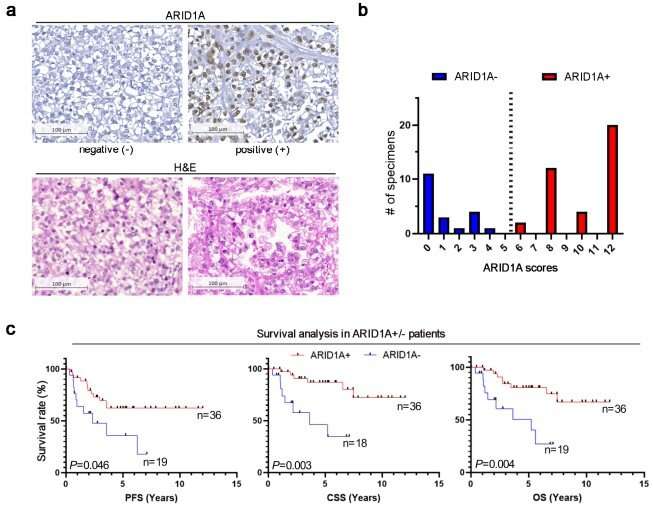Researchers discover protein that may be associated with better prognosis for women with ovarian cancer

Researchers from the University of Minnesota have discovered that a protein associated with metabolism, and formerly recognized as a potential therapeutic target for ovarian cancer, may instead be associated with a better prognosis for women with this cancer.
Published in Cancer Research Communications, investigators from the U of M Medical School and the Masonic Cancer Center focused on GLS1, a protein that plays a key role in metabolism of the nutrient glutamine that is used as a source of energy in several cancers. Using tumor samples from patients with a specific subtype of ovarian cancer known as clear cell carcinoma, the investigators discovered that an overabundance of GLS1 did not correlate with a gene mutation that occurs in up to 60% of clear cell ovarian cancer cases, as previously thought.
"This study provides an example of the utility of clinical tumor specimens from human patients for confirmation of preliminary results identifying potential drug targets," said Martina Bazzaro, Ph.D., an associate professor in the Medical School, Masonic Cancer Center, and one of the senior authors of the study.
The research is especially timely because a drug that blocks GLS1 was recently evaluated in a clinical trial for patients with ovarian cancer, and those patients developed resistance to standard-of-care chemotherapy. The current study provides evidence that this approach may possibly be detrimental due to the protective effect of GLS1.
Emil Lou, MD, Ph.D., FACP, an associate professor in the Medical School, Masonic Cancer Center, and a senior author on the study said, "Expression of any drug target can vary from tumor to tumor. Overall our finding that GLS1 is protective and associated with better patient outcomes gives reason to pause any consideration of therapeutic targeting of GLS1, as neutralizing it would block its protective effect and potentially be detrimental to patients."
The clinical trial for patients with ovarian cancer targeting GLS1 in combination with another drug was halted in Spring 2022, and results from the current study may serve as basis for further investigation on the actual role of this protein in ovarian cancer and why it may be associated at the molecular level with better prognosis in patients.
More information: Valentino Clemente et al, GLS1 is a protective factor in patients with ovarian clear cell carcinoma and its expression does not correlate with ARID1A-mutated tumors, Cancer Research Communications (2022). DOI: 10.1158/2767-9764.CRC-22-0122

















